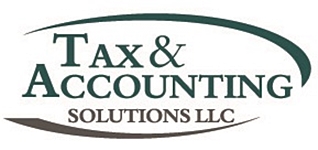Key benefits of 2019-2020 tax changes
Tax law changes made under the SECURES Act and CARES Act have resulted in a number of taxpayer benefits, some of which are addressed below. This information is provided as an overview and should not be construed as tax advice. Contact us to discuss the details of these provisions and how the 2020 tax changes will apply to your individual situation.
What’s new with my retirement plan?
Most seniors are aware of the mandate to withdraw “required minimum distributions” (RMDs) from their IRA annually after they reach age 70 ½. If they skipped their RMD, they suffered a penalty. But in 2020, no penalty will be assessed, which means seniors don’t have to take a RMD in 2020 unless they choose to. And seniors who turn 70 ½ in 2020 or later can wait a bit longer to make mandated withdrawals: the new beginning age for RMDs becomes 72 going forward.
If you’re one of the growing number of people working past retirement age (or have money to invest in retirement), you can now continue contributing to your traditional IRA past the age of 70 ½. Contribution limits for traditional IRAs and Roth IRAs are still at $6,000 per year, but certain “catch-up” contributions are allowed and 401k plan annual caps have been raised. Contributions to eligible retirement plans can decrease your overall tax liability; income ceilings that apply to the amount of tax benefits received have also increased.
Taxpayers who need additional funds due to life changes or COVID-19 challenges can seek assistance from their retirement plan. New parents can take up to $5,000 from a retirement account without penalty, and taxpayers harmed by the effects of COVID-19 can borrow up to $100,000 from a retirement account. Contact us for details.
A variety of new rules have benefits for eligible students (post-graduate and higher); certain individuals who inherit IRAs; taxpayers who opt for the standard deduction; people with long-term-care insurance, health savings accounts, and high out-of-pocket medical expenses; and many more.
Is my CARES Act payment taxable income?
The stimulus payment that most Americans receive under the CARES Act will not be treated as taxable income on 2020 tax returns. It will, however, be listed and reconciled on 2020 tax forms. The payments — $1200 per person and $2400 for couples filing jointly, plus $500 for each child under age 17 — are advance payment of a special 2020 tax credit. If you receive more than the credit you are allowed, the IRS is currently saying you won’t have to repay the overage. If you receive less than you are entitled, you can claim the balance on your 2020 return. Keep in mind that the payment amount for single taxpayers begins to decrease when adjusted gross income exceeds $75,000. For joint filers and single-head-of-household filers, the phase-out threshold is $150,000 and $112,500 respectively.
Are there any benefits to returning to school?
Several education tax breaks have been modified by raising income caps or relevant expenses.
Single filer taxpayers with adjusted gross income of $69,000 or less can claim a tax credit of up to $2,000 for expenses paid toward tuition, books, and other education costs under the Lifetime Learning Credit. Couples filing jointly can get the credit if their adjusted gross income is $118,000 or less. The tax credit does not multiply. In other words, the maximum per family is $2,000 for expenses up to $10,000, This credit is geared toward older or returning learners — it does not require full-time or even half-time attendance and it is not limited to undergraduate education expenses. A slightly different program, the American Opportunity Credit, applies to students in their first four years of college who attend at least half time.
The Education Saving Bond Program adjusted gross income threshold has been raised, allowing more people to help pay for their or their dependent’s college education. In this program, Series EE and Series I savings bond owners can redeem their bonds tax-free if the money is spent on tuition and fees for college, graduate school or vocational school for the taxpayer, spouse or dependent. Several other provisions have not changed; for example, the bond owner must have been at least 24 years old when the bond was purchased.
Can I still get a tax credit for installing a new solar system?
The residential solar credit, along with tax breaks for geothermal heat pumps, residential wind turbines, and other energy-saving related investments, is slowly decreasing and is scheduled to disappear in 2022. The credit, which was 30 percent in 2019, falls to 26 percent in 2020 and 22 percent in 2021.
If I don’t itemize expenses, how can I get credit for a charitable contribution made in response to COVID-19 pandemic needs?
The CARES Act allows taxpayers who don’t itemize expenses to write off up to $300 in charitable contributions, provided that the donations are made in cash and are not given to private non-operating foundations. For those who itemize charitable contributions, the dollar limit on cash donations has been suspended.

